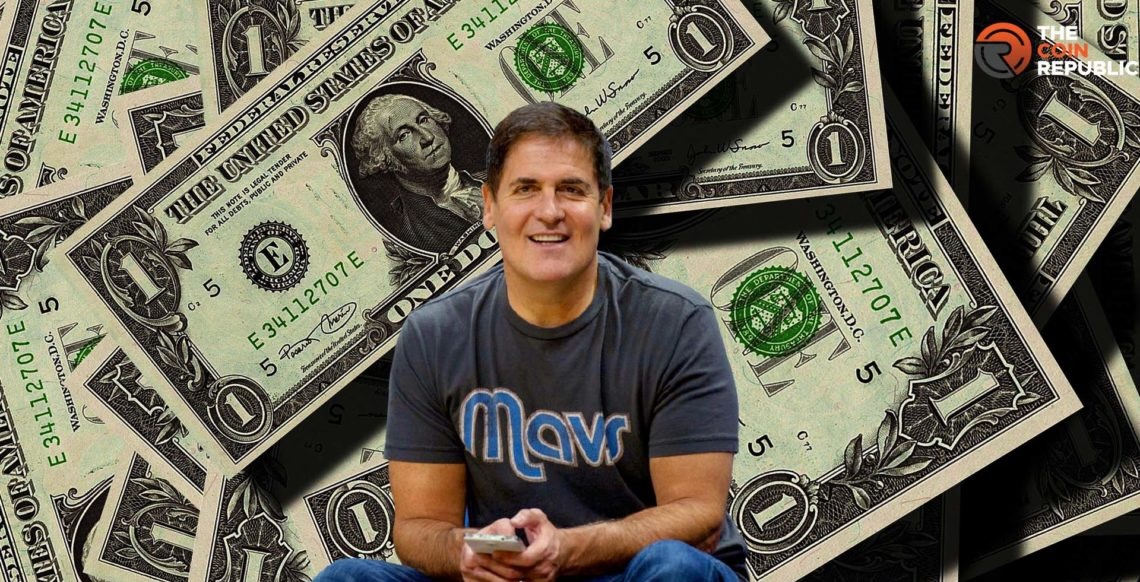Understanding Cuban Net Worth: A Look At Life And Money On The Island
Have you ever stopped to think about what "net worth" truly means for people living in a place like Cuba? It's a question that, you know, really gets you thinking, especially when we consider how different life can be from one country to another. For many, the idea of personal wealth often brings to mind bank accounts, investments, or big houses. But in Cuba, a unique island nation in the Caribbean Sea, south of the United States and east of Mexico, the picture of what someone owns or what their financial standing might be looks quite a bit different.
The concept of individual financial well-being there is shaped by a long and rather distinct economic path. It's not just about how much money someone might have in their pocket, but also about the things they have access to, the support systems around them, and the very specific ways the economy operates. This island, which is the largest in the Caribbean and has approximately 11 million people, has a history that, frankly, plays a huge part in how money and possessions are viewed.
This article will try to shed some light on what cuban net worth could mean, exploring the everyday financial experiences of people there. We will look at how the island's unique situation affects personal finances, and perhaps, you will get a clearer picture of the real lives and economic realities that exist on this very interesting landmass, which, by the way, has an area of more than 44,000 square miles (114,447 sq).
- Mkvmoviespoint Bollywood Movies Your Ultimate Destination For Indian Cinema.linkmaz
- Unveiling The Truth Blue Ivys Real Mother Cathy White.linkmaz
- Aagmaalcom Pro.linkmaz
- Get The Original El Patron Viral Video Now Download And Share.linkmaz
- Tangmo Nida Death The Untold Story Behind The Tragic Incident.linkmaz
Table of Contents
- What Does "Cuban Net Worth" Really Mean?
- A Glimpse into Cuba's Economic Life
- Money Sent from Outside Cuba
- Looking at the Bigger Picture: Cuba's Place in the Caribbean
- Life and Culture: More Than Just Numbers
- Questions People Often Ask About Cuban Money
What Does "Cuban Net Worth" Really Mean?
When we talk about cuban net worth, it's not quite the same as in many other places around the globe. In a lot of countries, someone's net worth is often seen as the total value of what they own, like their house, car, or savings, minus what they owe, like loans or debts. But for many people living in Cuba, the idea of accumulating a lot of personal wealth in the way we might understand it, you know, has been a bit different for a long time.
The system there, for a good while, has leaned heavily on government support and services, providing things like housing, education, and healthcare. This means that, in a way, some of the usual big expenses people face in other places are covered. So, while a person might not have a huge bank balance, they might have access to things that contribute to their well-being in other ways. It's a different sort of value, you see.
This situation has, frankly, shaped how individuals view their own possessions and financial standing. It's less about a growing pile of money and more about what you can access and how you can manage your daily life. The economic changes happening now, however, are slowly, but surely, starting to shift this picture, making the idea of personal wealth a little more varied, as a matter of fact.
- Subhashree Sahu Season 2 Mms Video The Controversial Rise.linkmaz
- Girth Master And Mia Z A Deep Dive Into Their Journey And Impact.linkmaz
- Alyx Star Movie.linkmaz
- Kai Trump Speech Problem Understanding The Challenges And Finding Solutions.linkmaz
- Emily Compagno Husband.linkmaz
A Glimpse into Cuba's Economic Life
To truly get a sense of cuban net worth, we need to look at how the economy itself works on the island. Cuba, which is the largest island in the Antilles because of its surface area of 109,884.01 square kilometers, has a system that's a mix of government-run enterprises and, more recently, some private business efforts. This combination creates a unique environment for how people earn and spend their money, too it's almost.
For a long time, most jobs were with the government, and wages were, by many standards, quite low. This meant that people relied a lot on the subsidized goods and services provided by the state. Yet, over the past few years, there's been a noticeable, if slow, opening up to more private work. This has allowed some people to earn more, creating a wider range of financial situations than before, which is pretty interesting, actually.
Understanding these different ways of making a living is, in fact, key to getting a grip on the whole idea of cuban net worth. It’s not a simple calculation, but rather a look at a complex set of daily economic realities that vary quite a bit from person to person, depending on their work and their access to different resources.
How People Make Money in Cuba
People in Cuba earn money in a few main ways, and these paths can really affect their personal financial picture. For a very long time, the majority of jobs were with the government, in areas like healthcare, education, or state-owned industries. The pay for these jobs, you know, has typically been set at a certain level, providing a basic income but not much room for, well, accumulating a lot of extra cash.
However, more recently, there's been a noticeable rise in what are called "cuentapropistas," which are basically self-employed people. These individuals run small private businesses, like restaurants, guesthouses for visitors, or taxi services. This kind of work can, quite frankly, offer a chance to earn more money than a state job, so it’s a big deal for those who can get into it.
Also, a lot of people get support from family members living outside Cuba, especially from the Cuban expatriate community. This money, often called remittances, can really help families meet their daily needs and even, perhaps, save a little bit. It's a significant source of income for many households, making a real difference in their ability to get by and, in a way, build some personal resources.
The Role of Government and Markets
The government in Cuba has always played a very big part in the economy, and this, you know, directly influences what cuban net worth can look like. For decades, the state controlled most of the major industries, services, and even the distribution of goods. This meant that prices for many essential items were set by the government, often at very low, subsidized rates, which was meant to make sure everyone could afford them.
But things are changing, and the market is starting to have a bit more say. There's been a slow, steady introduction of more market-based activities, especially with the growth of private businesses. This means that for some goods and services, prices are now more influenced by supply and demand, rather than just government decree. It’s a shift that, honestly, brings both new chances and new challenges for people trying to manage their money.
These changes mean that while some things are still provided by the state, people are increasingly relying on private markets for other needs. This dual system, where government and market forces both have a hand, creates a rather unique economic situation that people have to, as a matter of fact, learn to live within.
What Things Cost on the Island
Understanding the cost of living in Cuba is, you know, a big part of understanding cuban net worth. For many basic things, like housing, healthcare, and education, the costs are either very low or completely covered by the government. This means that people don't have to spend a large portion of their income on these essential services, which is a pretty big help, actually.
However, for other items, especially imported goods or things sold in the newer private markets, prices can be quite high, sometimes even higher than what you might expect in other countries. This creates a situation where, while some necessities are cheap, other desires or even some important goods can be quite expensive. So, you know, people have to be very clever with their money.
The availability of goods can also be a factor. Sometimes, certain items are hard to find, which can drive up their cost on the informal market. This means that even if someone has money, getting what they need or want can sometimes be a bit of a challenge. It’s a dynamic that, in fact, shapes daily life and financial planning for many people on the island.
Money Sent from Outside Cuba
A really significant part of the financial picture for many families in Cuba comes from money sent by relatives living abroad. This money, often called remittances, is, frankly, a very important source of income for a lot of households. It helps people buy things they need, improve their homes, or even start small businesses, so it really makes a difference.
For many Cubans, especially those with family members in places like the United States, these funds can mean the difference between just getting by and having a bit more comfort. Miami's Freedom Tower stood as a beacon of hope for Cubans fleeing communist rule at the height of the Cold War, and today, the descendants of those who left often send money back. This connection between the Cuban expatriate community and families on the island is, you know, very strong and vital.
The amount of money coming in from outside can vary a lot, but for some families, it’s actually their primary source of funds. This flow of money has a pretty big impact on the overall economic situation for many people, allowing them to have a higher standard of living than they might otherwise, which is, in a way, a very clear example of global connections at work.
Looking at the Bigger Picture: Cuba's Place in the Caribbean
Cuba, as you might know, is the largest country in the Caribbean by area, and it's also the largest island in the Caribbean. Its size, with an area of more than 44,000 square miles (114,447 sq) or 109,884.01 square kilometers, means it has a lot of land and a relatively large population of approximately 11 million people compared to its neighbors. This geographical importance, you know, also plays a part in its economic story.
When we talk about cuban net worth in a broader sense, we can also think about the country's overall economic standing compared to other nations in the region. Cuba has a unique economic model, which makes direct comparisons a bit tricky. While some Caribbean nations rely heavily on tourism or specific exports, Cuba has a more diversified, albeit centrally planned, economy.
The island's history and its political path have, in fact, set it apart from many of its neighbors. This means that the way wealth is created and shared, and how individual financial well-being is experienced, is quite distinct. It’s a fascinating case study, really, in how different approaches to economic life can shape a nation and its people, as a matter of fact.
Life and Culture: More Than Just Numbers
When thinking about cuban net worth, it's really important to remember that life on the island is about much more than just money or possessions. The rich culture, the strong community ties, and the vibrant daily life are, frankly, huge parts of what makes Cuba what it is. People there often find wealth in experiences, relationships, and the arts, which is, you know, a beautiful thing.
For example, you can often find a growing menu including cocktails, dominoes and live music in many places, showing a lively social scene. There's a strong sense of shared history, and the name of Cuba itself comes from the Taino language spoken by the Arawak natives, reflecting deep roots. This cultural richness, you see, contributes to a different kind of "net worth" that isn't measured in dollars or pesos.
The historical sites, like the Freedom Tower in Miami which will reopen next month as a museum honoring the history of Cubans, show a deep connection to the past and a spirit of resilience. Don't miss out on the Cuban flavor, they say, and that flavor is about more than just food; it's about a way of life that values human connection and shared experiences. So, while financial figures give one view, the full picture of life in Cuba is, in fact, much richer and more varied, at the end of the day.
Questions People Often Ask About Cuban Money
People often have a lot of questions about money and the economy in Cuba, and that's understandable, given its unique situation. Let's look at some common things people ask, which can help shed more light on the idea of cuban net worth and daily life there. These questions often touch on the practical aspects of living and earning on the island, you know, which is pretty important.
What is the average salary in Cuba?
The average salary in Cuba, especially for state jobs, has typically been quite low when compared to international standards. For a long time, it was, you know, just enough to cover basic needs, with the government providing many services like housing and food subsidies. However, with the recent changes allowing more private businesses, some people working in these new sectors can earn much more, which is, in a way, creating a wider range of incomes.
It's a bit hard to give one single number that truly represents everyone, because the economic landscape is always, frankly, shifting. But generally, state salaries are still modest, while earnings from self-employment or remittances from family abroad can significantly boost a household's actual spending power. So, you know, it's not a straightforward answer.
How does Cuba's economy work?
Cuba's economy is, in essence, a centrally planned system with a growing, but still limited, private sector. The government owns and controls most of the major industries, like sugar production, tourism infrastructure, and healthcare. It also, you know, sets prices for many essential goods and services, which are often subsidized to make them affordable for everyone.
However, over the past decade or so, there's been a noticeable increase in private businesses, often called "cuentapropistas." These small ventures, like private restaurants, bed-and-breakfasts, and taxi services, operate more on market principles. This means that, in a way, the economy is a mix of these two systems, with the government still holding the main reins but with more room for individual enterprise, which is, honestly, a pretty big development.
Can Cubans own private property?
Yes, Cubans can, in fact, own private property, though the rules around it have changed over time and are still a bit unique compared to many other countries. For many years, private property ownership was very restricted, especially for things like homes. But in recent times, the government has, you know, relaxed some of these rules, allowing people to buy and sell homes and even cars among themselves.
This change has been a pretty big deal for many families, allowing them to gain a tangible asset that they can pass down or even sell. It's a significant step towards a more market-oriented economy, and it certainly affects the idea of cuban net worth for individuals, giving them a more traditional way to build personal assets, which is, frankly, a very important shift.
Learn more about Cuba's rich history and culture on our site, and link to this page for the latest Cuba news including local and breaking politics, Havana, the Castro regime, US policy, travel and the Cuban expatriate community.
For more detailed information on economic definitions and notes, you might want to visit a resource like The World Factbook by the CIA, which offers a broader view of the country's economic structure, too it's almost.
- Andie Elle Leak.linkmaz
- Aditi Mistry Latest Live Video Unveiling The Hype And Buzz Around The Sensation.linkmaz
- T%C3%A3rk If%C3%A5%C3%BFa X.linkmaz
- Wpcnt App The Ultimate Guide To Streamline Your Wordpress Content.linkmaz
- Jamelizz Erome The Rising Star Of Modern Creativity.linkmaz

Mark Cuban's Net Worth 2024: How He Made His Fortune

Mark Cuban Net Worth Breakdown: How He Makes his Billions

Current Mark Cuban Net Worth 2024: How Rich is this Billionaire Shark